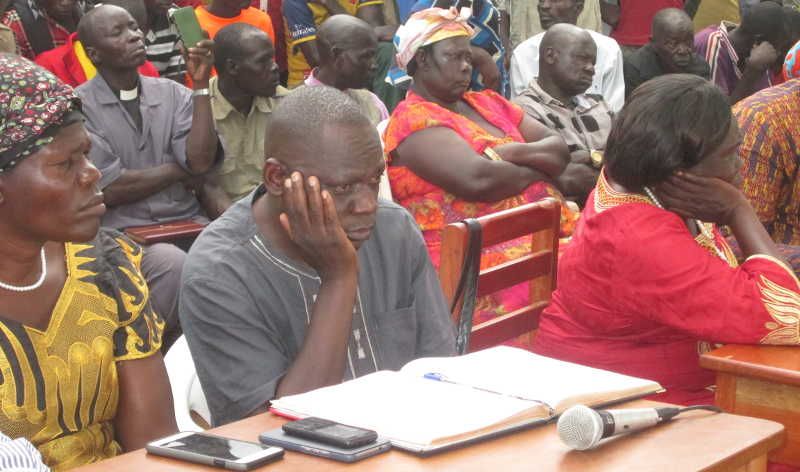
Indecisiveness, pretense;
Three reasons why NRM government can no longer do anything until it can do everything!
the women were this week at the front-line to pretest the government plan to give 10,000 acres of land in Amuru to ‘investor’ Madivani for sugarcane growing” width=”800″ height=”425″ /> Yet again, the women were this week at the front-line to pretest the government plan to give 10,000 acres of land in Amuru to investor ‘Madivani’ for sugarcane growingMr. President, it increasingly becoming clear that your government can no longer do anything until it can do everything.
You will not succeed at transforming agriculture without also reforming and securing land, investing heavily in irrigation and environmental modification, improving rural credit, reviving cooperatives to facilitate efficient farm-input supply and marketing, building rural infrastructure (roads, electricity, agro-processing centres, and bulking and storage facilities), as well as providing extension services to boost agricultural productivity.
It is also inconceivable that you will be able to build industries without also developing the human resources that are needed to work in the industries, developing the agriculture and mineral sectors to supply raw materials, and of course building infrastructure (roads, railways, and energy) to support the industrialisation.
Yet government has also realised it will not be able to build the infrastructure and other investment projects without seizing private land. Many projects have stalled because government has failed to pay land owners what they deem as fair value for their land.
Because of this, government wants to amend Article 26 of the 1995 Constitution to give itself powers for compulsory acquisition of land a.k.a official land grab. Government wants to legislate such a law in a country that espouses free market economics!
I have written over 520 articles!
How did we end up here? NRM government put itself in this situation. This week, I met a young man called Darius Mugisha. If you bumped into Darius somewhere in the streets of Kampala you may easily dismiss him. He is Rasfarian; we often dismiss such guys. We call them ‘bayaye’ (crooks). Actually they also know this; Bobi Wine had to drop his hairstyle to present himself for a legislative job.
Like Bobi, Darius is damn smart. He uses math to diagnose societal problems and prescribe solutions. Using numbers, he told me that NRM government suffers three main weaknesses: indecisiveness, conflict of interest, and pretense.
Mr. President, I love Darius! And so I told him. He summarised what I have spent a decade writing about – pouring oceans of ink – in three defects of your government. Indecisiveness. Conflict of interest. Pretense.
Since May 2006, I have written over 520 articles nearly on everything. My maiden piece was on our continued implementation of Structural Adjustment Programmes (SAPs), yet in 2000 an internal World Bank report concluded that the poor were better off without structural adjustment.
Then I went on a writing rampage: from thespian democracy (pretense) to doing things the ‘Ugandan way’ (conflict of interest) to government’s failure to declare MUBS a university (indecisiveness). Then, week after another the cycle continued.
State wants to seize private land!
These three factors perfectly explain the paradoxical situations where the NRM government has delivered itself. A democratically elected government, whose economic ideology is rooted in private sector-led strategy, under a free market economic system, feels it can only develop Uganda by seizing private land!
Why? Darius and I share minds. We both think illusions, deception (revolutionaries call it siasa), and pretense have a very short shelf-life. Because they need a lot of awareness and memory, they consume loads of cognitive resources. Soon one becomes indecisive, powerless and thus resort to desperate mechanisms of fighting very small battles.
This is the genesis of the Constitutional amendments being pushed and withdrawn (indecisiveness) by the cabinet ministers. Mr. President, since 1995 your government has been involved in four land reform legislations (during the Constituent Assembly, the 1998 Land Act, the 2007 Land Amendment Act, and now the 2017 Constitutional Amendment Bill on Land).
Mr. President, as you wrote more laws, land disputes escalated. You appointed a minister (Ida Nantaba) specifically to preside over the land disputes. You also created a special branch in police, the Land Police Protection Unit, to ensure land the disputes do not degenerate into chaos. All these efforts failed, forcing you to do set up a Commission of inquiry into land matters headed by Justice Catherine Bamugemereire.
Your efforts to sort out land related disputes have largely failed because of the three factors: indecisiveness, conflict of interest, and pretense.
Why the failed land reforms?
Mr. President, first your government has for a long time pretended as if it does not know what land means to an African. We all know that in Africa, land is life. Like Margaret Mitchell wrote way back in 1936, “Land is the only thing in the world worth working for, worth fighting for, worth dying for, because it’s the only thing that lasts.”
We all know that depriving a rural household or community of land is synonymous with depriving them of their livelihoods, food security, or literally everything.
I often advise new comers to Africa thus, “If you don’t want to die in Africa, keep away from two treasures of man: land and woman.” So, why does your government, Mr. President pretend that it does not understand this?
Secondly, it is this government that wrote the 1995 Constitution and under Article 237 (1) provided that: “Land in Uganda belongs to the citizens and shall vest in them in accordance with the land tenure system provided for in this Constitution.”
The word “vest” in the above article means: “conveying of unconditional entitlement, or conferring or bestowing power, authority, and property” and other potent meanings. To an ordinary person, this would mean absolute power over land, unchallengeable by anyone, not even the State.
Indecisiveness
Thirdly, it is this very government that provided for multiple rights found in the Constitution and other land laws. In the end, it created a system that is centred on struggles between peasants, landlords, ‘investors’ and the State for the equalisation of land rights.
It is also not far-fetched that NRM’s liberal model has created a generation of landless people in an agrarian society. The confusion in this liberal land governance model has undermined the positions of not only the smallholder farmers and land owners, but also that of government.
This is what has led to escalation of land conflicts, social inequality, food insecurity, land degradation, low agricultural productivity, ‘middleman syndrome’, slow implementation of public investments, and thus slow economic transformation.
And yet, government is continuing to do more of the same, in an unchanged environment, and expecting different results! Instead of doing certain simple things, government thinks it will solve everything through legislation. And who are the legislators? The very people whose families and/or voters would be affected either negatively or positively by the outcomes of the laws before them (conflict of interest).
So what would work? Government knows. We have been telling it year after another, for the past thirty years, what would solve the land question in the country. So why has the government of very smart people failed to implement the proposals? Indecisiveness.
We have told this government that all successful land reforms have been achieved through two ways: 1) ‘buy and redistribute’ approach for democratic societies, or 2) outright seizure of land by government from landlords in authoritarian societies.
Uganda being a democratic society, the second option is not available. So, Mr. President, here is a summary (once again) of what your government should do to eternally solve Uganda’s question:
Unenforceable laws
First, title people’s land to strengthen individual land rights. All tenants should be given the choice of registration, where the registered tenant would not be evicted provided they pay a legally stipulated share of say 20% of output to the landlord per year for two decades. This idea provides a win-win prototype between landlords and tenants.
Mengo’s “Kyapa Mungalo” is somehow near this arrangement, although it seems exploitative. The problem was created when Mengo allowed into the arrangement middle men, some of whom are leaders in the kingdom (another conflict of interest).
Secondly, instead of writing more land laws and amendments, government should streamline land institutions to allow conflict resolution. Today we have land tribunals, district land boards, district land offices, area land committees, recorders at the sub-county levels, etc. This proliferation of land institutions has resulted into confusion in land conflict resolution.
Thirdly, government needs to disempower the “entrepreneurs of land conflicts” through use of peasant empowerment strategies such as ceiling on landholding.
Fourth, we need to start enforcing land use plans for urban development, food security, environmental protection, and strategic purposes (large scale investments etc.). The laws are in place but we have failed to enforce them. Folks are grazing in the city centre, building in road reserves, farming in industrial parks, building factories in residential areas, name it.
Mr. President, stop legislating laws that you will not manage to enforce. As Albert Einstein (1879-1955) says, “Nothing is more destructive of respect for the government and the law of the land than passing laws which cannot be enforced.”
And you and your colleagues in cabinet wait for the outcomes of the Bamugemereire commission of inquiry ask yourselves the following questions: who should adjudicate land disputes? What constitutes fair land reform? What are the internal and external political effects of the land reform? Is it a matter of government waking up one shiny or rainy day; look around and see its projects stalling due to its failure to adequately compensate land owners; enact a law to enable its access to private land?
Mr. President, one reason economists mind a lot about land governance is because when land rights are threatened (either by private land grabbers or the state) people will spend most of their time protecting land instead of spending it on production. We now drive to our villages every weekend to check on our land, just in case a government vehicle passes nearby.

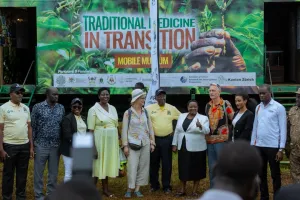
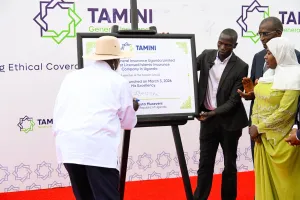
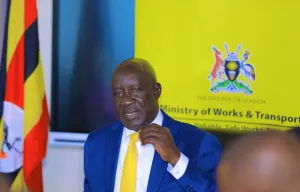
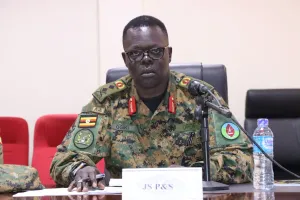
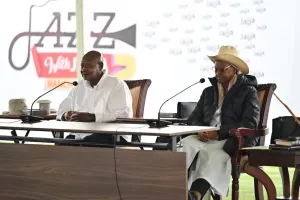








Ramathan Ggoobi
Ramathan Ggoobi is Policy Analyst, and Researcher. He lecturers economics at Makerere University Business School (MUBS) and has co-authored several studies on Uganda's economy. For the past ten years, he has published a weekly column 'Are You Listening Mr. President' in The Sunrise Newspaper, Uganda's Leading Weekly
Leave a Comment
Your email address will not be published.